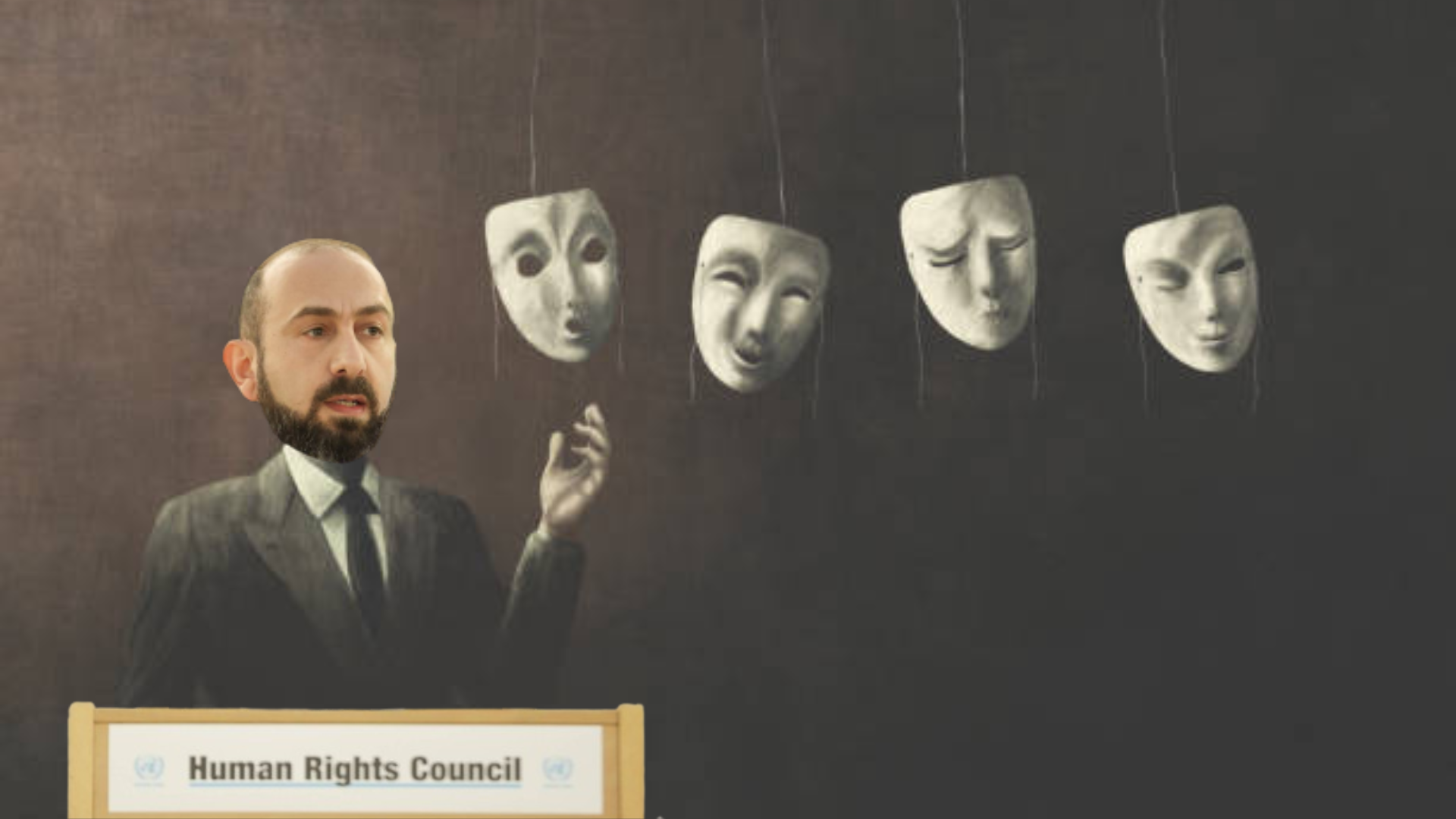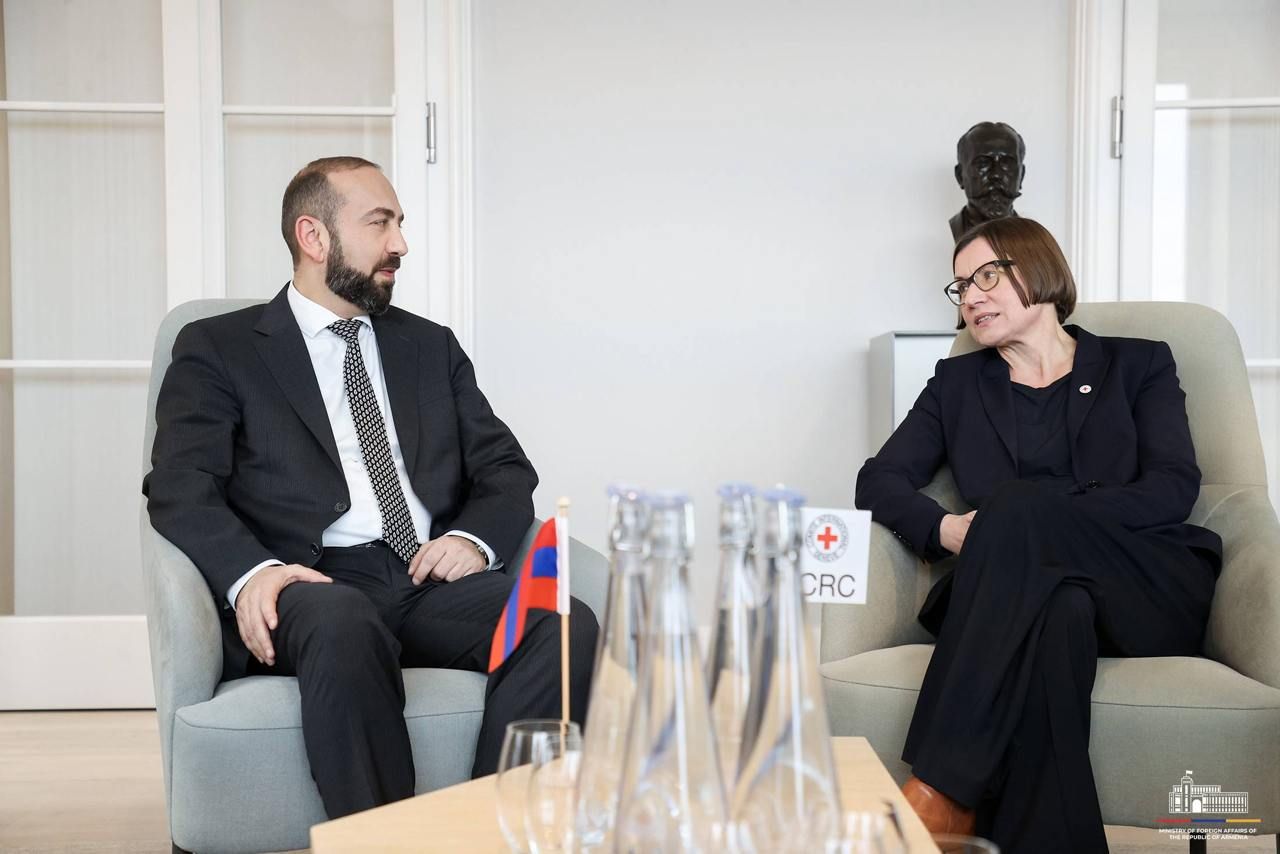Yerevan’s selective memory continues as Armenian FM tries whitewashing war crimes at UN

At the 58th session of the UN Human Rights Council in Geneva, Armenian Foreign Minister Ararat Mirzoyan once again attempted to present Armenia as a victim, accusing Azerbaijan of violating human rights and disregarding peace efforts. Standing before the international community, he spoke of justice, human rights, and peace—conveniently omitting Armenia’s own dark legacy of war crimes, ethnic cleansing, and decades of occupation.
Mirzoyan dared to call Azerbaijan’s legal proceedings a “mockery” and “shameful.” Yet, what is truly shameful is Armenia’s presence at the UN without acknowledging the horrors it committed. The Armenian government speaks of peace, but since Azerbaijan restored its sovereignty over Garabagh on September 20, 2023, Yerevan has taken no meaningful steps toward peace. Instead, it continues to play the victim while ignoring the undeniable evidence of its past crimes.
Uncovering Armenian atrocities: Khojaly and beyond
It's quite interesting to see how certain Armenian officials forget about the fact that, even today, Armenian crimes are being unearthed in Garabagh—not only in Khojaly but also in Meshali, Kalbajar, Shusha, and other liberated territories. Mass graves, remnants of brutal massacres, and the traces of ethnic cleansing continue to be discovered, exposing the scale of Armenia’s decades-long terror. While Mirzoyan ridicules Azerbaijan’s courts, calling them "shameful," he conveniently ignores Armenia’s own legacy of war crimes
The Khojaly Massacre remains one of the darkest chapters of modern history. On the night of February 25-26, 1992, Armenian forces, with support from the Soviet 366th Motorized Rifle Regiment, carried out the mass slaughter of 613 Azerbaijani civilians, including 106 women and 63 children. This was not an act of war—it was a deliberate extermination of innocent people.
However, the pain of the past cannot be erased so easily. The ghosts of Khojaly remain, as does the question of accountability. Armenia’s continued silence regarding the fate of the missing Azerbaijanis, just like its refusal to provide mine maps, reinforces its unwillingness to face the truth of its actions. But as history has shown, fortunately, no crime goes unpunished. The recent interrogations of Armenian military figures such as Vagif Khachatryan, Rashid Beglaryan, and Madat Babayan have exposed the systematic nature of the crimes orchestrated by Armenian forces.
Yet, Mirzoyan and his government refuse to acknowledge these crimes. Instead, they take international platforms to spread narratives of victimhood while the truth of their brutality continues to surface from the very land they occupied.
ICRC’s complicity, and the dark legacy of the organization in Azerbaijan's own lands
During his visit, the Minister also met with the Chairman of the ICRC, addressed the release of Armenian prisoners of war and civilians, the unjust trials conducted against them, and expressed concern about the health of these individuals and the potential impact on their well-being. Interestingly, a few days ago, during the court, one of the criminals Arayik Harutyunyan informed that he had no health issues. It was stated that if he did have any health problems, he would be taken into custody for care. This medical service is not exclusive to him; it is available to everyone in similar situations.

But let us not drift away from the main point here. Certainly, the Committee significantly assisted both parties by providing aid to injured or helpless individuals, ensuring they received necessary custody care, and facilitating the smooth passage of civilians across borders during wartime, however for decades, the ICRC has also seen operating in the region under the pretense of humanitarian aid, while evidence suggests that it played a direct role in assisting Armenian separatists.
For over three decades, the ICRC operated in Garabagh with blatant bias, serving not only as an auxiliary force for the separatists but allegedly as an intelligence conduit for Armenia. Witnesses recall ICRC vehicles appearing on the battlefield during the First Garabagh War, using humanitarian cover to assist Armenian forces with logistical and intelligence support. These activities continued into the 44-day war in 2020, where the ICRC was accused of hindering Azerbaijan’s military advances while allegedly sharing sensitive information with Yerevan.
Even after Azerbaijan restored its territorial integrity, the ICRC’s role in illegal activities did not cease. Back in July 2023, Azerbaijan’s State Border Service exposed the ICRC’s involvement in smuggling operations across the Lachin border checkpoint. Despite being granted unrestricted access for humanitarian purposes, ICRC vehicles were found transporting contraband to the so-called regime in Garabagh, raising concerns about whether they were also facilitating the illegal movement of weapons and military supplies.
Armenia’s empty peace rhetoric
While Mirzoyan stands before the UN and speaks of justice, Armenia remains a country that has never been held accountable for its crimes. The discovery of mass graves, the refusal to acknowledge Khojaly, and the years of illegal occupation all prove that Armenia’s so-called peace agenda is nothing more than a smokescreen.
Since September 2023, Yerevan has done near zero to prove its commitment to peace. Instead, it continues its diplomatic maneuvering, hoping that international sympathy will overshadow the reality of its actions. But the facts remain: Armenian crimes are still being uncovered, and its government refuses to confront the truth.
As long as Armenia chooses denial over accountability, there will be no true peace in the region. Azerbaijan has moved forward, restoring its sovereignty and uncovering the full extent of the crimes committed. Mirzoyan’s speech in Geneva may fool some, but history will not be rewritten—the evidence of Armenia’s atrocities is buried in the lands of Garabagh, and it will continue to surface.
Here we are to serve you with news right now. It does not cost much, but worth your attention.
Choose to support open, independent, quality journalism and subscribe on a monthly basis.
By subscribing to our online newspaper, you can have full digital access to all news, analysis, and much more.
You can also follow AzerNEWS on Twitter @AzerNewsAz or Facebook @AzerNewsNewspaper
Thank you!

